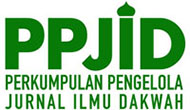KONTRIBUSI TEORI KEMISKINAN SEBAGAI DEPRIVASI KAPABILITAS DARI AMARTYA SEN DALAM UPAYA PEMBERDAYAAN MASYARAKAT MISKIN
Abstract
Abstrak
Penelitian ini bertujuan mengkaji konsep kemiskinan sebagai deprivasi kapabilitas dari pemikiran Amartya Sen dalam upaya pemberdayaan masyarakat miskin di Papua. Metodologi yang digunakan ialah analisis wacana kritis. Penelitian ini menemukan bahwa pemikiran Sen sesungguhnya adalah sebuah alternatif kritis terhadap beragam wacana dan teori ilmiah yang kerap mengidentifikasi masalah kemiskinan sebagai kekurangan dalam pencapaian komoditas tertentu. Padahal teori-teori tersebut berbeda dengan standar universal dan standar masyarakat bersangkutan. Oleh karena itu, konsep pemikiran Amartya Sen sangat relevan untuk memahami kasus kemiskinan di daerah Papua dan Papua Barat dalam upaya pemberdayaannya. Sebab masyarakat Papua dan Papua Barat hidup di daerah yang secara sumber daya terbilang kaya, tetapi masyarakatnya kehilangan hak dan askesnya untuk mengolah dan memberdayakan sumber daya alamnya. Akibatnya terjadi deprivasi kemampuan personal dan aspirasi kepentingan sosial-politik masyarakat Papua dan Papua Barat.
Kata kunci; Deprivasi, Ekonomi, Kapabilitas, Kemiskinan, Papua dan Papua Barat
Abstract
This study aims to examine the concept of poverty as a capability deprivation from Amartya Sen's thoughts about efforts to empower poor communities in Papua. The methodology used is critical discourse analysis. This research finds that Sen's thinking is a critical alternative to various scientific discourses and theories that often identify the problem of poverty as a deficiency in the attainment of certain commodities. Even though these theories are different from universal standards and the standards of the community concerned. Therefore, Amartya Sen's concept of thought is very relevant for understanding cases of poverty in the regions of Papua and West Papua and efforts to empower them. Because the people of Papua and West Papua live in areas that are relatively rich in resources, but the people lose their rights and access to process and empower their natural resources. The result is the deprivation of personal abilities and aspirations of the socio-political interests of the people of Papua and West Papua.
Keywords: Deprivation, Economy, Capabilities, Poverty, Papua and West Papua.
Keywords
Full Text:
PDFReferences
Adon, Mathias Jebaru. “Keterlibatan Masyarakat Desa Benteng Tado-Manggarai NTT Dalam Pemilu Bagi Kesejahteraan Sosio-Ekonomi Menurut Armada Riyanto.” MADANI: Jurnal Politik Dan Sosial Kemasyarakatan, vol. 13, no. 3, 2021, pp. 242–65.
Alcock, P. Understanding Poverty. Palgrave McMillan, 2006.
Badan Pusat tatistik. “[Metode Baru] Indeks Pembangunan Manusia Menurut Provinsi 2020-2022.” BPS, 2022, https://www.bps.go.id/indicator/26/494/1/metode-baru-indeks-pembangunan-manusia-menurut-provinsi.html.
---. “Persentase Penduduk Miskin (P0) Menurut Provinsi Dan Daerah 2021-2022.” BPS, https://www.bps.go.id/indicator/23/192/1/persentase-penduduk-miskin-p0-menurut-provinsi-dan-daerah.html. Accessed 29 Mar. 2023.
Callinicos, Alex. “Equality of What?” Contemporary Political Theory: A Reader, 2004, pp. 36–44, doi:10.4135/9781446215272.n5.
Haryatmoko. Critical Discourse Analysis (Analisis Wacana Kritis) Landasan Teori, Metodologi Dan Penerapan. Rajawali Pers.
Lister, R. Poverty. Polity Press, 2004.
Murray, C. Losing Ground: American Social Policy 1950-1980. Basic Books, 1984.
P. A.Townsend. “Deprivation.” Journal of Social Policy, vol. 16, no. 2, 1987, pp. 125–44.
---. Poverty in the United Kingdom: A Survey of Household Resources and Standards of Living. University of California, 1979.
---. “Sociological Approach to Measurement of Poverty: A Rejoinder to Professor Amartya Sen.” Oxford Economic Papers, vol. 37, no. 4, 1985, pp. 659–88.
Pattiasina, Sharon Michelle O. “Pemberdayaan Kaum Miskin Sebagai Panggilan Gereja Terhadap Masalah Kemiskinan.” BIA Jurnal Teologi Dan Pendidikan Kristen Kontekstual, vol. 4, no. 1, 2021, pp. 100–12, http://www.jurnalbia.com/index.php/bia Pemberdayaan.
Rowntree, Benjamin Seebohm. Poverty: A Study of Town Life. Macmillan, 1902.
Sen, Amartya. Development as Freedom. Oxford University Press, 1999.
---. Inequality Reexamined. Harvard University Press, 1992.
---. “Poor, Relatively Speaking.” Oxford Economic Papers, vol. 35, no. 2, 1983, pp. 153–69.
---. The Idea of Justice. The Belknap Press, 2009.
---. “Well-Being, Agency and Freedom: The Dewey Lectures.” The Journal of Philosophy, vol. 82, no. 2, 1985.
Smith, A. An Inquiry into the Nature and Causes of the Wealth of Nations. Tourneisen and Legrand, 1971.
Winarno, Edi. Etika Pembangunan. Center for Academic Publishing Service (CAPS), 2013.
Wulansari, Ica. “Paradoks Pembangunan Dalam Kemiskinan Struktural Di Papua.” Jurnal Sosiologi Pendidikan Humanis, vol. 2, no. 2, 2017, pp. 88–95.
DOI: http://dx.doi.org/10.24014/jmm.v8i1.22295
Refbacks
- There are currently no refbacks.
Editorial Office:
2nd Floor, Building of Da'wah and Communication Faculty, UIN Sultan Syarif Kasim Riau. Jl. HR Soebrantas Km 15, Simpangbaru, Tampan, Pekanbaru
Email : madani@uin-suska.ac.id













